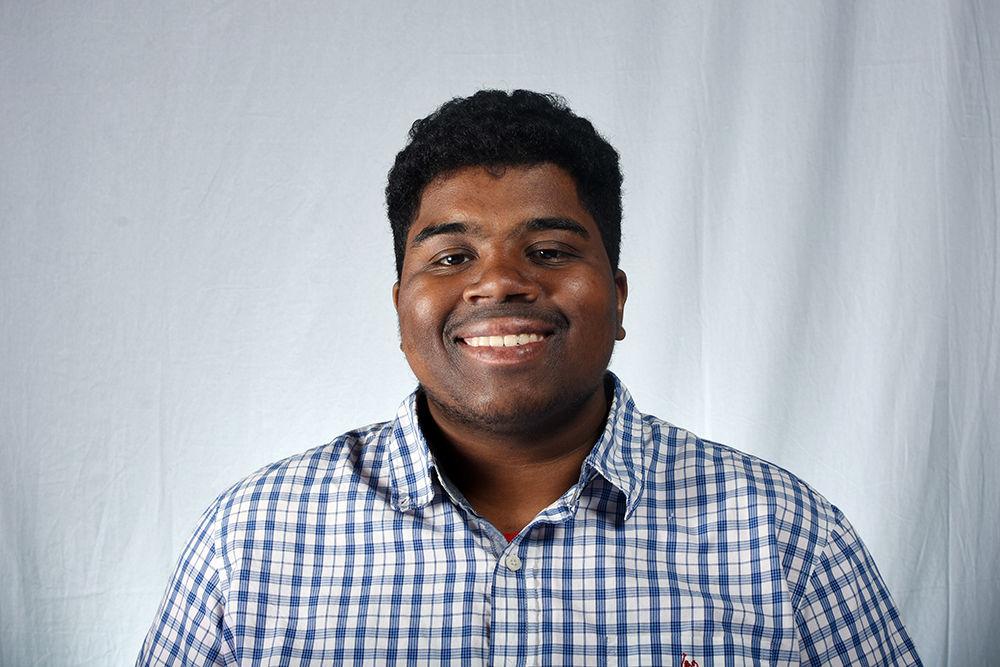As a proud Christian, my faith is a central part of my life. My spirituality informs my view of the world, and my spiritual beliefs are at the very core of my humanity. The world is full of people with worldviews different from mine. Through interfaith — the bridging of different worldviews and beliefs — people can come together to make a better society. However, it must start right here on our university campuses.
People cannot truly understand each other or reach any common ground if they do not understand each other’s view of the world. Faith is an identity that is barely explored in diversity dialogue. While it will always be important to talk about race, gender and sexual orientation, faith is another aspect of identity that needs to be explored as well.
Mary K. Cunningham, an associate professor of religious studies, reflected on the importance of studying and understanding different religions: “Religion asks the most important questions people have: where we come from, where we’re going, how we should lead our lives, what is our obligation to other people.”
“Religion can function in a positive way by promoting certain values,” Cunningham said. “Religion also plays a part in a lot major world conflicts. I think it is important for people to understand the difference between Shiites and the Sunnis of Islam so people ought to understand more about them.”
The world is divided. Modern-day society faces many wicked problems. Between social inequality and environmental issues, the world is not in a great state of affairs, to say the least. Interfaith is one way to solve these issues. People should come together through their spirituality. Their purest form of identity can heal divides and progress society to a more pluralistic space.
Becky Cibulskis, International Programs Assistant for NC State’s Global Training Initiative, highlights the importance of interfaith dialogue for current political climate. “The interfaith topic is important because of what is going on in the world currently politically, where groups persecute other groups based on faith, which is another reason it should be included in more diversity and inclusion dialogues and programs,” Cibulskis said.
Through faith, people can come together and connect on a deeper level and connections such as these last a lifetime. Through interfaith, and exposure to different worldviews, I have grown a deeper relationship with my own faith. Exploring how others think challenged my own thinking, which made my faith stronger while also gaining more respect for various religious identities.
Jim Burklo, Associate Dean of Religious Life at the University of Southern California, highlights this aspect of interfaith engagement in his article for the Huffington Post: Seven Principles of Interfaith Engagement. “One reason to get involved in interfaith work is to look more critically at your own faith, take it more seriously, and become more curious about it,” Burklo said. “This has been my own experience. Learning and practicing Buddhist meditation methods led me to explore the rich meditative and contemplative mystical traditions of my Christian heritage.”
Universities aid students in professional development, which is a huge aspect of our college careers. From navigating career aspects, to building skills to be a competent professional, professionalism is one of the central parts of the college experience. However, the college experience is more than just professional development; it’s about becoming a complete human.
Education’s role in society is not just to make better professionals but better human beings. Universities need to contribute to the spiritual development of the student body. Through supporting interfaith, universities can aide in the spiritual development of all students by empowering their ability to engage in their faith openly. Ingraining interfaith into campus culture will make campuses at colleges and universities much more inclusive, culturally speaking, and fulfilling, spirituality speaking.
NC State can support worldview diversity and interfaith dialogue by building another student center dedicated to interfaith. While there is an interfaith prayer space located in the Witherspoon Student Center, there is no space dedicated to worldview diversity. NC State students should have space for fully-staffed student support with additional resources.
Students can engage in interfaith dialogue and events on campus through organizations like Better Together, a national interfaith organization with a chapter on NC State. There are also other faith-based organizations that engage in interfaith dialogue such as the Muslim Students Association. Better Together day, a day dedicated to interfaith dialogue and is scheduled for April 10.
Faith is an essential aspect of people’s lives, and our University should support the student body’s spiritual development. Spirituality can bring out the best in humanity, and when we as people connect with ourselves, not only will our campus improve, but society as a whole will be better.














